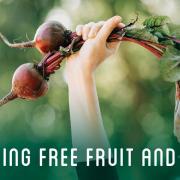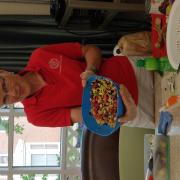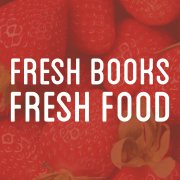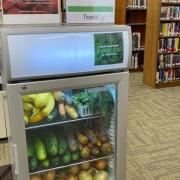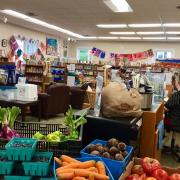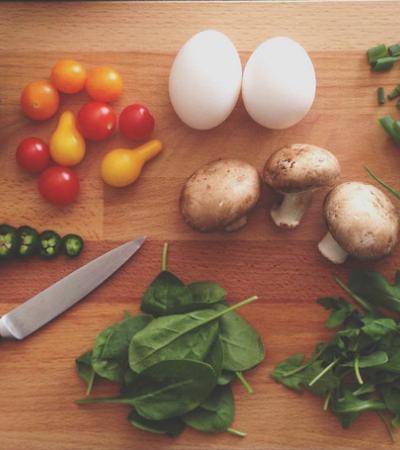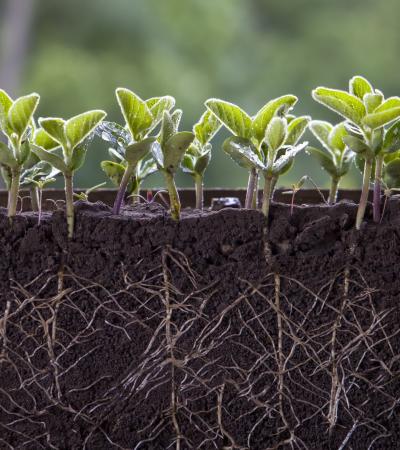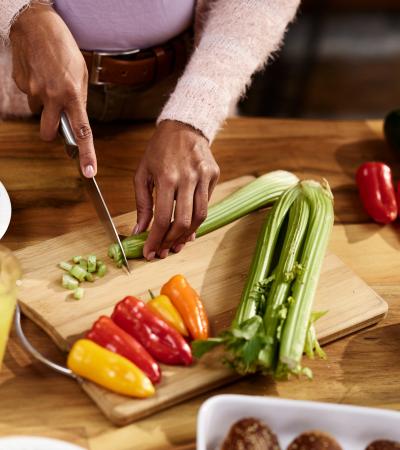The Southern Adirondack Library System works with two regional food distribution networks – the Comfort Food Community and Capitol Roots’ Squash Hunger Program – to reduce food waste by rescuing food. The food gleaned from local farms is shared through libraries located in rural food deserts to alleviate the challenges of food insecurity and food access.
Begun as a pilot program in 2017 after a conversation with Glens Falls Hospital, the initiative addresses health disparities in areas where people depend on subprime groceries (think Dollar Stores and gas stations) for food. In 2021, 10 member-libraries share local fresh food with our communities.
Advanced Planning
As part of our efforts to build a robust, system-wide adult literacy program, we saw a need for wrap-around services to support adult learners. It’s hard to focus on getting a high school equivalency degree or become a better reader when you’re hungry or worried about getting food on the table.
Goals/Learning Outcomes:
- Reduce food waste
- Address the issues of food access and insecurity in rural food deserts
- Build relationships with non-users of public libraries
- Develop trust with adult learners
Marketing
When we launched the program in 2017, we sent out a press release and had good local coverage. As the program expanded, we created bookmarks and rack cards to promote the program locally and developed social media posts and website and email headers for participating libraries. Participating libraries post weekly deliveries on their social media sites and report that the bulk of the food is claimed within days of delivery.
We believe the marketing efforts have gone well, but we also recognize that there has been a lot of word-of-mouth promotion in the community. By September 2021, we had shared more than 30,000 pounds of fresh food with more than 6,400 people. Participating libraries have reported creating cards for new patrons that come to the library for the program.
Budgeting
Aside from a portion of my salary to coordinate the effort, the program has not had additional regular expenses. We have paid for the marketing materials from award money and literacy funding from our state library. Libraries that have joined the program in the last year have purchased refrigerators to store the fresh food.
If we needed to cut costs, we would eliminate the printed promotional material.
Day-of-event Activity
When we kicked off the initial program in 2017, we partnered with Cornell Cooperative Extension to show how to make a simple meal with the ingredients we were sharing. We invited Comfort Food Community to join us and held the class on the first day of the food distribution.
We installed the glass-front refrigerators and displayed shelf-stable items in baskets or as attractively as possible. We set up a table for the instructor for Cornell Cooperative Extension to demonstrate the recipe, which was shared with participants.
Staff helped by ensuring that the refrigerator and space for the fresh food display were ready to go. The presenter, myself, the library director, and our community partner attended the program.
Program Execution
The program has been a resounding success. Everyone who shares food loves it, and the participating libraries find it a relatively easy, ongoing service to provide to their community. The libraries report that the program has brought new faces into their buildings and have made lots of cards for new patrons.
Over the past four years, we’ve shared 50,000 pounds of fresh food with more than 8,500 people – not bad for a group of small, rural libraries!
Our 2021 participating libraries:
- Argyle Free Library
- Bancroft Public Library (Salem)
- Cambridge Public Library
- Corinth Free Library
- Pember Library & Museum
- Rockwell Falls Public Library
- Schuylerville Public Library
- Stillwater Public Library
- Waterford Public Library
- Whitehall Free Library
Advice
Reach out to potential community partners that are doing the work, and find out how you can support and amplify what they are doing.

